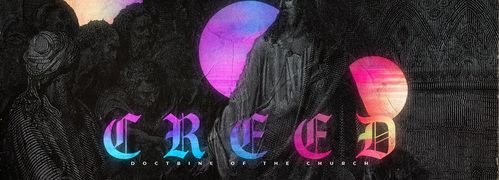Friday Devo

Scripture Reading:
Acts 4
32 All the believers were united in heart and mind. And they felt that what they owned was not their own, so they shared everything they had. 33 The apostles testified powerfully to the resurrection of the Lord Jesus, and God’s great blessing was upon them all. 34 There were no needy people among them, because those who owned land or houses would sell them 35 and bring the money to the apostles to give to those in need.
36 For instance, there was Joseph, the one the apostles nicknamed Barnabas (which means “Son of Encouragement”). He was from the tribe of Levi and came from the island of Cyprus. 37 He sold a field he owned and brought the money to the apostles.
32 All the believers were united in heart and mind. And they felt that what they owned was not their own, so they shared everything they had. 33 The apostles testified powerfully to the resurrection of the Lord Jesus, and God’s great blessing was upon them all. 34 There were no needy people among them, because those who owned land or houses would sell them 35 and bring the money to the apostles to give to those in need.
36 For instance, there was Joseph, the one the apostles nicknamed Barnabas (which means “Son of Encouragement”). He was from the tribe of Levi and came from the island of Cyprus. 37 He sold a field he owned and brought the money to the apostles.
Commentary from the ESV Study Bible:
Though some people have referred to this situation as “early communism,” this is clearly not the case, since (1) the giving was voluntary and not compelled by the government, and (2) people still had personal possessions, because they still met in “their homes” (v. 46) and many other Christians after this still owned homes (see 12:12; 17:5; 18:7; 20:20; 21:8, 16; Rom. 16:5; 1 Cor. 16:19; Col. 4:15; Philem. 2; 2 John 10). Further, Peter told Ananias and Sapphira that they did not have any obligation to sell their property and give away the money (Acts 5:4). In contrast to communist theory, the abolition of private property is not commanded or implied here. (See 1 Tim. 6:17–19; but also 1 Tim. 6:6–10.) On the other hand, there is a voluntary generosity in sharing possessions that is seen as commendable.
4:34 The believers’ sharing exemplified the OT ideal of there not being a needy person among them—that is, there should be no poor in the community of faith (cf. Deut. 15:4–11). To realize this ideal the Christians would sell some of their goods and bring the proceeds to the apostles for distribution to the needy. Neither their sharing nor their bringing offerings should be seen as any sort of communal ownership such as was practiced by the Essenes and by later Christian monks, for the practice was strictly voluntary (see Acts 5:4). Such sacrifice and giving is seen as exemplary.
4:36 Barnabas would not have been cited as an example of sharing if the practice had not been voluntary. Barnabas is introduced in the Acts narrative at this point; he is a major character in later chapters, particularly as Paul’s companion on his first mission. That mission began on Cyprus (13:4b–6), the home of Barnabas. The nickname son of encouragement fits his personality well. He introduced the newly converted Paul to the apostolic circle when everyone else was suspicious of him (9:27). He brought Paul to Antioch to participate in the outreach to the Gentiles (11:25–26). And he stood up for the young John Mark when Paul did not want to take him with them (15:36–39).
4:34 The believers’ sharing exemplified the OT ideal of there not being a needy person among them—that is, there should be no poor in the community of faith (cf. Deut. 15:4–11). To realize this ideal the Christians would sell some of their goods and bring the proceeds to the apostles for distribution to the needy. Neither their sharing nor their bringing offerings should be seen as any sort of communal ownership such as was practiced by the Essenes and by later Christian monks, for the practice was strictly voluntary (see Acts 5:4). Such sacrifice and giving is seen as exemplary.
4:36 Barnabas would not have been cited as an example of sharing if the practice had not been voluntary. Barnabas is introduced in the Acts narrative at this point; he is a major character in later chapters, particularly as Paul’s companion on his first mission. That mission began on Cyprus (13:4b–6), the home of Barnabas. The nickname son of encouragement fits his personality well. He introduced the newly converted Paul to the apostolic circle when everyone else was suspicious of him (9:27). He brought Paul to Antioch to participate in the outreach to the Gentiles (11:25–26). And he stood up for the young John Mark when Paul did not want to take him with them (15:36–39).
Study Questions:
- The book of Acts shows us exactly what the New Testament church should look like. It is our blue print for how to do church and ministry. First, they were "united in heart and mind." They were all in it together and had their eyes set on the right things. Does this mean they agreed about everything? Most definitely not! But the mission was the most important thing, and they were all-in. Do you see this kind of unity in our churches today? What do you think could happen if we were all united in heart and mind? What is your role to play in being united as a church?
- Another hallmark of the early church was that they were generous. They all shared everything they had so that there was no one left that was in need. Think about that! How incredible! They truly believed that they didn't own anything so they shared it. They sold things and donated the money. The local church, if it were operating in this way, would be the answer to almost every problem in society today. And certainly no one would go hungry. This change has to start in the hearts of individuals. What is YOUR mindset when it comes to your money and your stuff? Is it yours? Or does it come from God? How "open-handed" are you with all that God has blessed you with?
Pray:
- That you would seek to be united in heart and mind with the church.
- That you would be open-handed with your money and your stuff.
This Week's City 7:
Try to commit to memory!
2. Are there sources outside the Bible that confirm the Biblical account of Jesus’ resurrection from the dead? Many Roman and Jewish historians have confirmed that the apostles died as martyrs for preaching that they saw Jesus risen from the grave. No one dies for something they know to be a lie.
(Luke 1:1-4; Acts 26:26; 1 John 1:1-4, Josephus, Clement, Hegesippus, Tertullian, Origen, Polycarp)
(Luke 1:1-4; Acts 26:26; 1 John 1:1-4, Josephus, Clement, Hegesippus, Tertullian, Origen, Polycarp)

No Comments